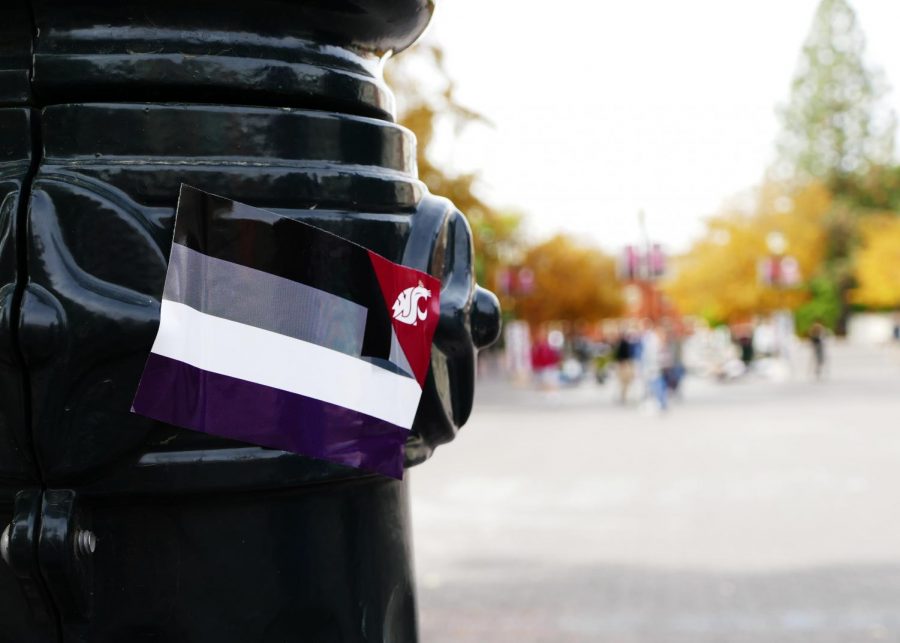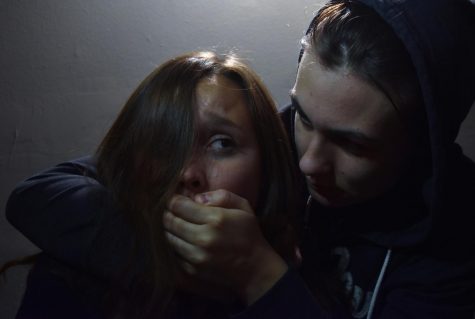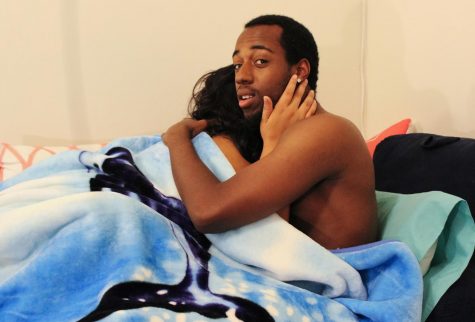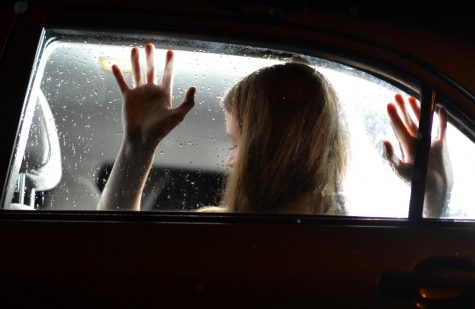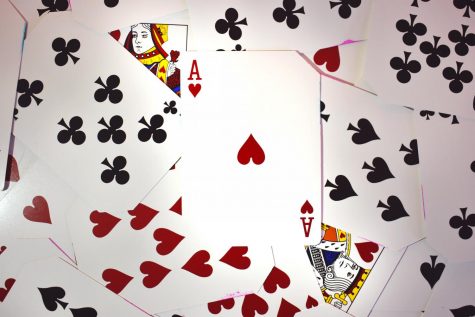Exploring the asexuality spectrum of love, not sex
Romantic feelings not explicitly sexual; range of relationships possible
STEPHEN MURNANE | EVERGREEN PHOTO ILLUSTRATION
Asexuality comes in more than one form, including variations in both romantic and sexual attraction.
October 12, 2018
Asexuality, as described by the Trevor Project, is a sexual identity spectrum in which love does not equal sex. People who fall on the spectrum may or may not engage in romantic or sexual relationships.
“I’m asexual, but akoiromantic,” junior David Hamre said. “I just don’t experience a sex drive.”
Hamre said he does not experience sexual attraction. He is not repulsed by sex but does not have interest in engaging in intercourse.
As for his romantic attraction towards people, it does not extend far from friendship, he said, and he does not need nor hope for reciprocation in his feelings if he has them.
“I am completely fine with being friends,” Hamre said. “Essentially, I feel romantic attraction, but I don’t have the desire to act on them.”
Due to his lack of interest in sex, Hamre said he finds it difficult to understand why products are often advertised with sexual undertones. The term “sex sells” is not one he is buying.
“Things that don’t have any relation to sex are marketed using sex,” Hamre said. “Yet it somehow works without anyone questioning it. It’s just really weird.”
Equating romantic attraction with sexual attraction is not a system junior Stephanie Kemp abides by. They identify as asexual and biromantic.
“I thought I was bi, at first, but I realized that [wanting] to kiss people does not necessarily mean [I was] sexually attracted to them,” Kemp said. “I remember thinking that I never wanted to get married because I don’t want to have sex with anyone.”
Kemp has kept their sexuality mostly to themselves, they said. They have come out to their friends and sibling and have received support and acceptance. Kemp said they struggle to understand society’s fascination with sex.
“I can sit there and think ‘How much time do people who experience sexual attraction waste thinking about sexual attraction?’ ” Kemp said. “[Asexual] people just have so much more free time.”
Kemp said if they were to enter a romantic relationship, they would make their disinterest in sex very clear. They would not allow themselves to be pressured into engaging in act they do not want to engage in.
“There are so many other things to do, like watching Hulu or eating pancakes,” Kemp said. “If the choice was between sex or eating pancakes, [I would choose] eating pancakes.”
Another identity on the asexual spectrum is demisexuality. Sophomore Christeena Brinson said demisexual people require a strong emotional connection with someone before they are able to feel sexual attraction toward that person. Brinson is demisexual and when she experiences attraction, it is only towards women.
“I’m not really into sex,” Brinson said. “I have to have an emotional connection to someone before I even think about sex.”
Hamre said sexuality, in its entirety, is a spectrum. Sexuality is different from gender identity, and sexuality is made of both romantic attraction and sexual attraction which may or may not be the same.
“We’re completely fine,” Hamre said. “We’re just like everyone else.”

